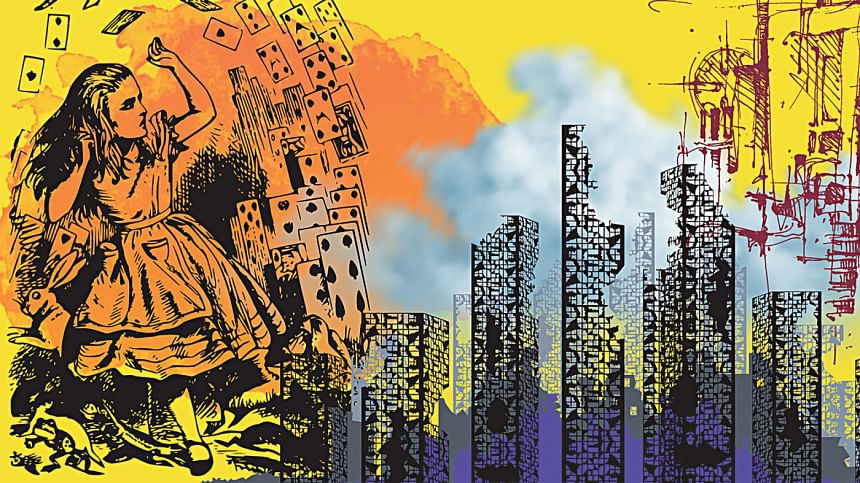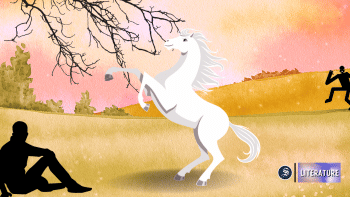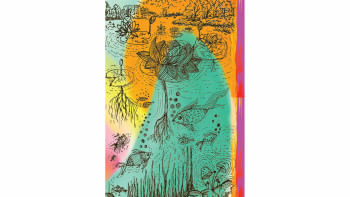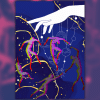Ruins & renaissance

The hurt remained beneath my skin like an unwritten revelation—never acknowledged, never tended to;
The hurt build itself into an empire of grief,
Etched in parts of my mind, disguising as fragmented memories,
And it collapsed like a house of cards upon the existence of absurd realities settling in.
The hurt—now stands as a ruin, amid the chaos;
Right in the center of myself (a city I built myself, bustling with crowds, unnamed acquaintances, strangers sharing quiet sunsets, and I greet them all here, amid the mess of myself.)
This city; the evident part of my existence
grows and then grows apart,
It thrives into kaleidoscopic spring blossoms,
It again subsides, surrendering to sudden uprisings — the tyrant has fallen,
The city knows its ruins (and it knows the essence of renaissance somewhere amid deserted alleyways painted upon the walls in graffiti.)
The city remembers—the hurt, and the wounds that came with it.
The city remembers the ones who visited this very ground and left.
Yet, it carries on marching with the fleeting seconds—building, growing, adapting, accepting.
This city that I built for myself, that I hid myself underneath— remembers everything;
And it curates the remains of the damages done—carefully amid art galleries and unvisited museums.
I tend to visit them at times, but never lingering for long;
For the city must go on,
At the pace of its endless revolutions—thriving and striving.
Maliha Tribhu is a writer, and is currently doing her undergraduate studies at the University of Dhaka, majoring in Marketing.

 For all latest news, follow The Daily Star's Google News channel.
For all latest news, follow The Daily Star's Google News channel. 









Comments